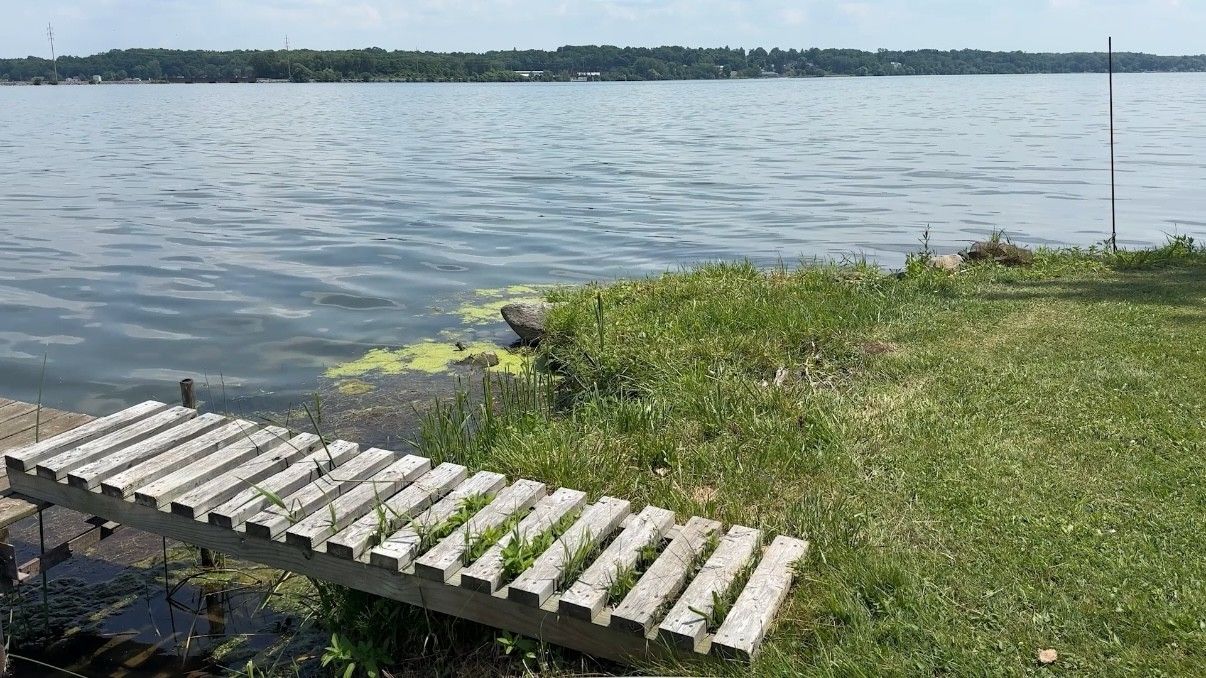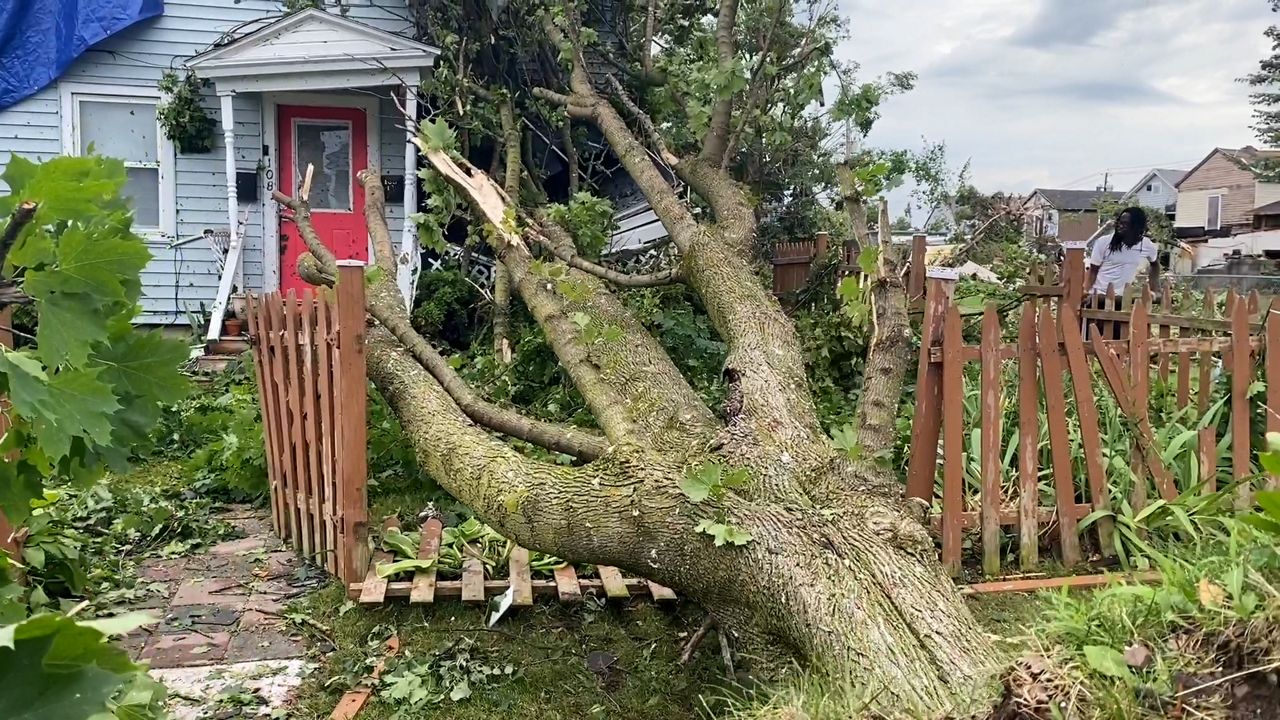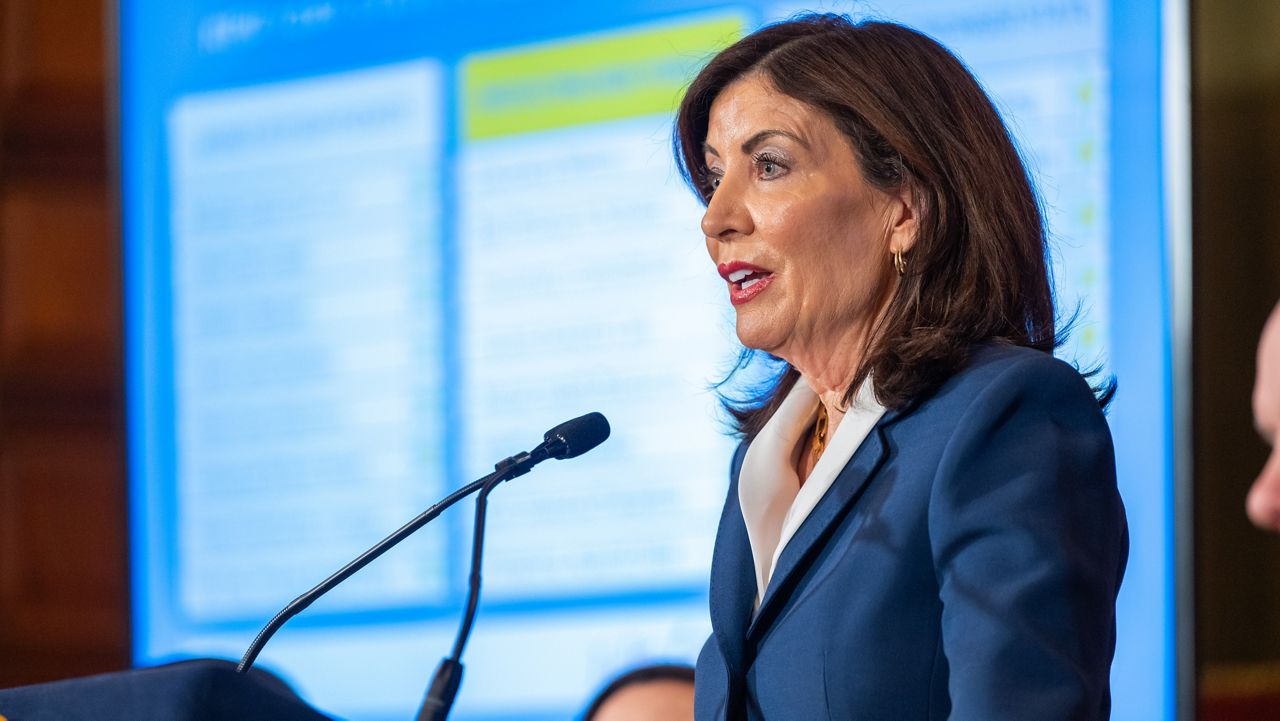COVID-19 was especially hard on New York students due to isolation and remote learning. Some schools have struggled with discipline and getting students back up to academic standards.
In January, $100 million in taxpayer money was earmarked by the governor for 50 school districts to support efforts to combat pandemic learning loss and expand access to mental health care. One high school, prior to this, was developing a plan of its own and seeing a lot of buzz around the programming.
“The decrease in [the need for] discipline and students acting out has been wonderful, and really uplifted this building,” says Kate Liddle, assistant principal of East Syracuse Minoa High School.
A program called SALT, or Spartan Achievement Learning Time, at ES-M, seems to be having a similar effect on that community. Students say they were still struggling with things like organization years after COVID.
“One of the biggest hurdles for especially seniors, is time management, and being able to do the activities that we do each week with checking our grades and being able to email our teachers and catching up on homework [is key],” says ES-M senior Adele Stinziano.
Some feel basic interaction and civility were lost as well.
“Well, it seemed like they forgot how to like communicate people is like the big thing," said junior Brett Hockey.
Principal Eddie Michalenko says the age-old model for schools is not necessarily the best model for students still acclimating post-pandemic.
“There was this outcry to have students in the building in a different space that wasn’t just answering a worksheet and problem solving," Michalenko said.
Their solution is the "SALT" program. The 24-minute daily block is created to strengthen relationships and rebuild school culture. It will have classmates and the teacher stay with their group all four years of high school.
Each day of the week focuses on different skills or habits necessary for success:
- "Mindful Monday" helps students learn to cope with stress.
- "Task Tuesday" is to accomplish goals that must be done in a structured way.
- "What's Up Wednesday" addresses current events both at the school and across the nation.
- "Tech Thursday" exposes students to tech tips.
- "Screen Free Fridays" are for group games, sports, overall bonding and downtime from the demands of the day.
“Means kind of just chilling with my friends and getting a little bit of a breather throughout the day, because it does get a little bit stressful," Stinziano said, "and today we did a fun activity ... and it was a good way of getting to know people's names, and experiencing like people that we don’t usually hang out with."
Officials want SALT to be adaptive to the students.
“We want our students to leave here as the best citizens they possibly can be, and sometimes the focus is so much on standardized tests, GPAs and scores. You sometimes lose the thread of integrity and character that we want our students to have,” Michalenko added.
One group is not focusing just on making themselves better, but on how they can help.
“My favorite part of it was that we got to work on a project that we chose to do and we all were able to see the meaning and what it translated into,” said ES-M junior Luke Grey.
Their group successfully collected almost 700 pairs of socks for the homeless and met with someone who was formerly homeless. With that win, they are fueled to tackle a new issue.
“Something I’m doing in English as a project which basically found the correlation between increased loneliness and isolation in America and the loss of local casual accessible places that people go to outside of work, school or home…but we wanted to do here was bring that into our school community,” said ES-M junior Phil Evans.
The SALT classes are getting a lot of attention; Baldwinsville Schools came to learn about the model as well as State Senate leaders.
“To designate time in the day for students to work on the things that they fell behind on talking to students talking to their friends, working collaboratively working with adults, these are all skills that [fell by] the wayside, and this district is doing an excellent job," said State Sen. Shelley Mayer, who's also the Education Committee chair.
Their school believes the SALT program was the missing ingredient.
"Definitely the classes will be closer because I know that that was kind of a problem for our class because of COVID," Stinziano said.
"We are noticing such a decrease in [need for] discipline, and it is refreshing as a leader in this building, but it has to be refreshing for the students," said Liddle.








